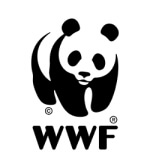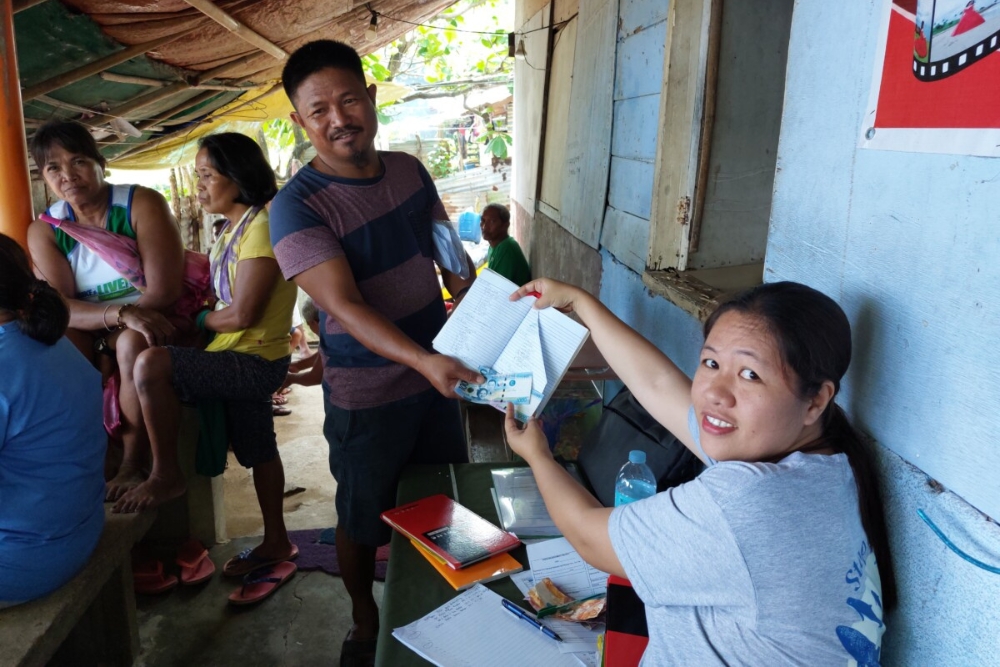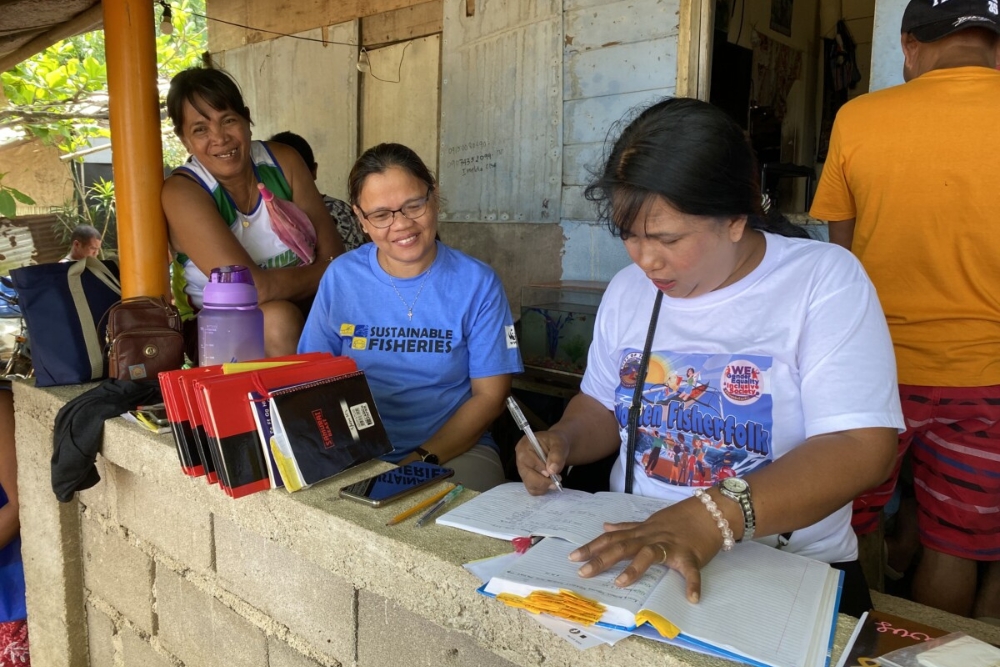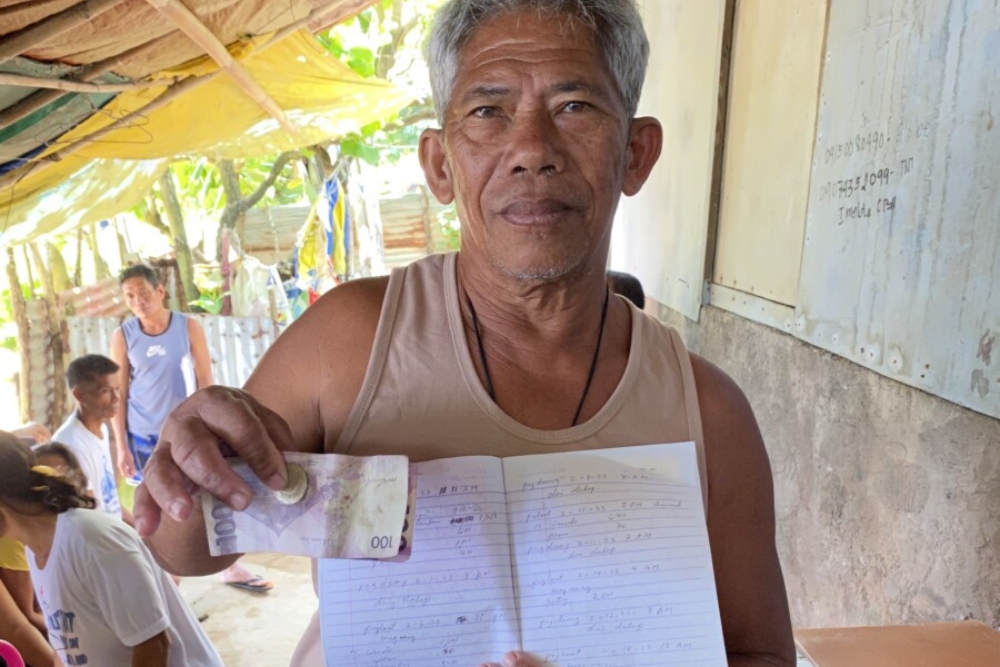Fishers from the Lagonoy Gulf received cash benefits this March, in exchange for properly collecting catch data during their fishing trips.
The rewards were given out as part of the Catch to Cash Project, an effort piloted by the World Wide Fund for Nature Philippines (WWF-Philippines) to encourage small-scale yellowfin tuna fishers to properly record catch data.
Catch data is important to fishery management as it allows authorities to understand where fish is being caught and whether seafood is being sustainably sourced.
Around 13,500 kilograms of tuna were properly recorded last March, with a total of over 40,000 pesos being rewarded to participating fishers.
“I can use these funds to buy paint. I have a lot of expenses I need to make to maintain my boat, so this cashout is helpful for me.” shared Ruel Buella, a fisher from the community of Sagurong, Tabaco City, Albay.
“This is also useful for when I have to pay for renewing my fishing license,” added Josephine Buiza, also a resident of Sagurong.
WWF-Philippines has worked with the fisheries of the Lagonoy since 2011. The conservation organization seeks to uplift the livelihoods of small-scale fishers, while encouraging them to adopt sustainable fishing practices.
Over the past decade the conservation organization has pursued a range of activities to support the livelihood of small-scale fishers in the Lagonoy Gulf and Mindoro Strait while developing local fisheries toward being more sustainable.
Catch to Cash looks to both improve traceability efforts among small-scale fishers while supporting their livelihood needs.
“Our work is rooted in conservation, but in everything we do, we make sure it goes back to our partner fishers. This has been our learning over the past decade of our program,” shared STP 2 Program Manager Joann Binondo.





